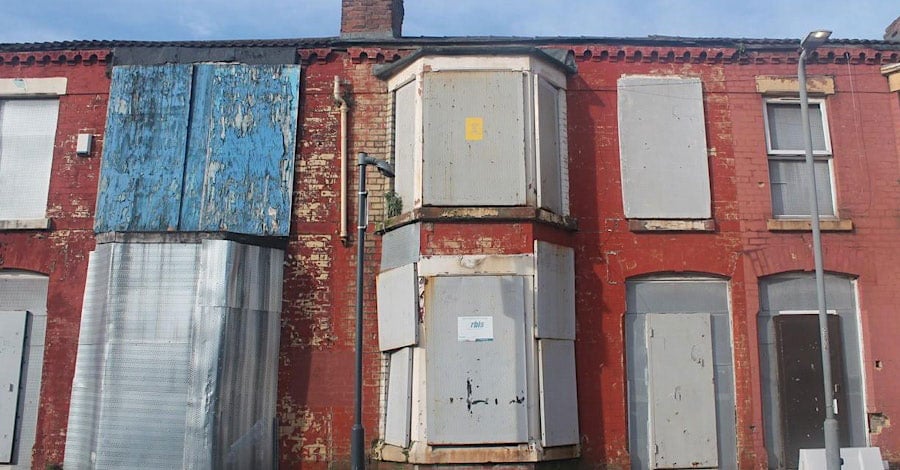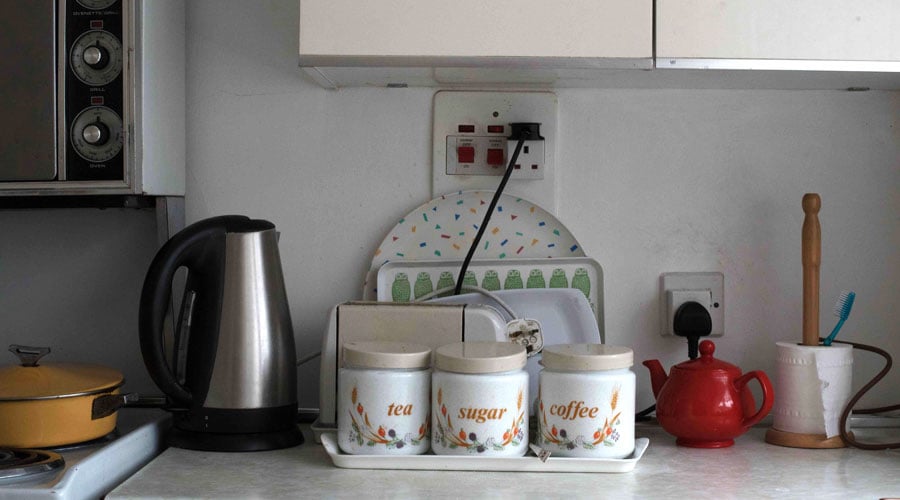
Illustration of many houses. Credit: Winterflower via Pixabay
National Evaluation of the Health and Social Impacts of Selective Licensing for Private Rented Housing in England
We are evaluating Selective Licensing Schemes for Private Rented Housing in England. This website is for people who want to find out more and people interested in participating.
Local authorities can choose to implement "Selective Licensing Schemes." These schemes aim to ensure that private rented homes meet required standards. We need evidence to find out if people benefit from selective licensing. This project will provide that evidence for England.

This study is funded by the NIHR Public Health Research programme (NIHR154797). The views expressed are those of the authors and not necessarily those of the NIHR or the Department of Health and Social Care.
Recent updates
Events
Newsletter
Contact us
Debbie Humphry
Research Fellow
London School of Hygiene & Tropical Medicine
15-17 Tavistock Place, London, WC1H 9SH

The number of people in England who rent their homes from private landlords has increased. Most private rented homes meet government health and safety standards. Some do not. This is a concern because poor housing is bad for people's health and wellbeing.
Local authorities can choose to implement "Selective Licensing Schemes." These schemes aim to ensure that private rented homes meet required standards. They cover the most common type of private rented housing. Local authorities can choose whether to implement these schemes.
Selective Licensing Schemes involve housing inspections. They require landlords to improve substandard. homes. They require landlords to take action on anti-social tenants. The government intend the schemes to benefit the wider community. The government states that reducing anti-social behaviour improves well-being.
We need evidence to find out if people benefit from selective licensing. This project will provide that evidence for England. We will measure the impact of Selective Licensing on tenants. We will measure impacts on the wider community – including health, anti-social behaviour and housing impacts.
We will include all the Selective Licensing Schemes in England that have run for at least 5 years. We know where these are. We will compare people who live in these schemes with people who live elsewhere. We have tested our methods in a study of Greater London.
We want to talk to different people and hear their views. We will interview people who implement Selective Licensing Schemes. We will interview landlords, tenants and community groups. For this part of our study, we will select certain schemes and learn more about them. We will look at schemes in the north and south of England. We will cover larger schemes and smaller schemes.
We want to know if selective licensing schemes are value for money. We will collect and assess economic information for that purpose. We want to ensure that our findings are useful and people know about them. We have good links with national and local government. We have good links with relevant charities. We will share our early findings with stakeholders. Their responses will inform our final report.
Registration: Research Registry. ID: researchregistry9775
Recent updates
Events
Newsletter
Contact us
Debbie Humphry
Research Fellow
London School of Hygiene & Tropical Medicine
15-17 Tavistock Place, London, WC1H 9SH
We are researchers at the London School of Hygiene and Tropical Medicine, University of Liverpool, Lancaster University, University of Bristol and University of Greenwich. We are funded by National Institute for Health and Social Care (NIHR). NIHR works in partnership with the National Health Service and is funded by the Department of Health and Social Care (DHSC).
Research team
- Professor Matt Egan, London School of Hygiene & Tropical Medicine (Project Lead)
- Dr Jakob Petersen, London School of Hygiene & Tropical Medicine (Project Lead)
- Dr Alexandros Alexiou, University of Liverpool
- Professor Ben Barr, University of Liverpool
- Professor Frank De Vocht, University of Bristol
- Dr Katie Fahy, University of Liverpool
- Dr Debbie Humphry, London School of Hygiene & Tropical Medicine
- Dr Katharina Janke, Lancaster University
- Dr Dalya Marks, London School of Hygiene & Tropical Medicine
- Ms Rose McDonald, Public Involvement
- Dr Tanith Rose, University of Liverpool
- Dr Maureen Seguin, London School of Hygiene & Tropical Medicine
- Ms Roz Spencer, Safer Renting, Cambridge House
- Dr Jill Stewart, University of Greenwich
Recent updates
Events
Newsletter
Contact us
Debbie Humphry
Research Fellow
London School of Hygiene & Tropical Medicine
15-17 Tavistock Place, London, WC1H 9SH

Get in touch
Please fill in the contact form below if you would like to participate in or find out more about our study on private renting.
What is the study about?
We are looking at whether or not people think that government licensing schemes for landlords who privately rent homes is a good idea. We are focusing on a type of scheme called ‘Selective Licensing.’ We invite you to give your views and experiences of private rented housing and what, if anything, you think about landlord licensing. It is part of a national study that considers lots of people’s views - implementers, tenants, landlords, voluntary organisations. The study evaluates health and social impacts.
What do people who take part do?
Take part in an interview. Up to one hour - by phone or online or in some cases face to face. We will ask about what it is like to rent, what impact private renting has on you and those around you, and if you know about landlord licensing. We will not make public any information we collect that could identify you, your home, or others.
Compensation for time.
Compensation for time is available for tenants who take part. At the end of the interview, tenants will receive a £20 shopping voucher. Other stakeholders will not receive shopping vouchers, although in the case of participants who take part in a face-to-face meeting, travel expenses will be covered.
Who runs the study?
Researchers at the London School of Hygiene and Tropical Medicine, Universities of Liverpool, Lancaster, Bristol and Greenwich.
Please contact us for more information or if you are interested in taking part.
Debbie Humphry, Research Fellow
London School of Hygiene & Tropical Medicine
15-17 Tavistock Place
London
WC1H 9SH
Email: debbie.humphry@lshtm.ac.uk
Study information sheets
Recent updates
Events
Newsletter
Contact us
Debbie Humphry
Research Fellow
London School of Hygiene & Tropical Medicine
15-17 Tavistock Place, London, WC1H 9SH
Publications and outputs will be updated as the national study progresses.
Impact of selective licensing schemes for private rental housing on mental health and social outcomes in Greater London, England: a natural experiment study
Petersen J, Alexiou A, Brewerton D, et al
BMJ Open 2022;12:e065747. doi: 10.1136/bmjopen-2022-065747
Assessing the impact of selective licencing schemes for private rental housing on mental health and well-being: protocol for a mixed-method natural experiment study in Greater London, UK
Petersen J, Seguin M, Alexiou A, et al
BMJ Open 2022;12:e057711. doi: 10.1136/bmjopen-2021-057711
Recent updates
Events
Newsletter
Contact us
Debbie Humphry
Research Fellow
London School of Hygiene & Tropical Medicine
15-17 Tavistock Place, London, WC1H 9SH
The map and table show the local authorities that implemented one or more Selective Licensing schemes between 2006 and 2021 in England. We collected the data by checking local authority websites and through Freedom of Information requests. The current version is the result of a consultation with local authorities that took place 25 Sep - 08 Nov 2024.
Further information: What is Selective Licensing?
Since 2006, local authorities have powers to implement area-based schemes where private landlords must register and pay a licence fee – known as Selective Licensing. These are not the only kind of private rental licensing schemes (there is also Mandatory and Additional Licensing for houses in multiple occupation) but we focus on Selective Licensing. Selective Licensing schemes usually last for 5 years and can be renewed – so the same area can have more than one scheme over time. They involve, amongst other things, inspections of properties and requirements for landlords to fix household hazards. They can be implemented in response to local problems such as low housing demand, antisocial behaviour, poor housing conditions, high levels of migration, deprivation, and crime. National government need to be informed about larger schemes but there is no definitive list of all the Selective Licensing schemes in England.
Table: Local authorities with Selective Licensing schemes in England, 2006-2021
| Local authority | Scheme start dates | |||||||
|---|---|---|---|---|---|---|---|---|
| Ashfield | 01feb2017 | |||||||
| Barking and Dagenham | 01sep2014 | 01sep2019 | ||||||
| Bexley | 01oct2018 | |||||||
| Blackburn with Darwen | 17feb2009 | 01jun2009 | 18jan2013 | 17mar2016 | 16may2017 | |||
| Blackpool | 15mar2012 | 27apr2014 | 26mar2019 | |||||
| Bolton | 10nov2008 | |||||||
| Brent | 01jan2015 | 01jun2018 | ||||||
| Bristol, City of | 15apr2013 | 01jul2016 | ||||||
| Burnley | 15jan2014 | 15jul2014 | 15nov2016 | 01nov2019 | ||||
| County Durham | 07feb2008 | 08feb2009 | ||||||
| Croydon | 01oct2015 | |||||||
| Doncaster | 01jul2015 | 07feb2018 | ||||||
| Ealing | 01jan2017 | |||||||
| East Staffordshire | 12sep2017 | |||||||
| Enfield | 01sep2021 | |||||||
| Gateshead | 25sep2007 | 11jan2010 | 18may2012 | 30apr2013 | 30apr2018 | 30oct2018 | 30oct2019 | 30apr2020 |
| Gedling | 01oct2018 | |||||||
| Great Yarmouth | 07jan2019 | |||||||
| Hackney | 01oct2018 | |||||||
| Hammersmith and Fulham | 05jun2017 | |||||||
| Harrow | 01nov2015 | 01jun2016 | 01mar2018 | |||||
| Hartlepool | 01may2009 | 06jul2015 | ||||||
| Hastings | 25oct2015 | |||||||
| Havering | 25jan2021 | |||||||
| Hyndburn | 05mar2018 | |||||||
| Islington | 01feb2021 | |||||||
| Leeds | 01oct2009 | 06jan2020 | ||||||
| Liverpool | 01apr2015 | |||||||
| Manchester | 03aug2007 | 02nov2007 | 13mar2017 | 08jan2018 | 23apr2018 | |||
| Middlesbrough | 01jan2016 | 13jun2019 | 14jun2021 | |||||
| Newcastle upon Tyne | 15sep2010 | 15sep2011 | 15oct2015 | 15sep2016 | 06apr2020 | |||
| Newham | 01mar2010 | 01jan2012 | 01mar2018 | |||||
| Nottingham | 01aug2018 | |||||||
| Oadby and Wigston | 05may2020 | |||||||
| Oldham | 01may2015 | 06jul2015 | 01sep2015 | 01jan2016 | ||||
| Peterborough | 31oct2016 | |||||||
| Redbridge | 13jul2017 | 01oct2018 | ||||||
| Redcar and Cleveland | 28oct2013 | 25mar2019 | ||||||
| Rotherham | 01may2015 | 01may2020 | ||||||
| Salford | 25may2007 | 02nov2009 | 03mar2013 | 27jan2015 | 01jan2016 | 15nov2017 | 20nov2019 | |
| Scarborough | 01jul2017 | 01jun2019 | ||||||
| Sefton | 01mar2018 | |||||||
| Sheffield | 22apr2014 | 01nov2018 | ||||||
| Slough | 01jul2019 | |||||||
| Southend-on-Sea | 01dec2021 | |||||||
| Southwark | 01jan2016 | |||||||
| Stoke-on-Trent | 15nov2011 | 15aug2014 | ||||||
| Thanet | 21apr2011 | 21apr2016 | ||||||
| Tower Hamlets | 01oct2016 | 01oct2021 | ||||||
| Waltham Forest | 01apr2015 | 01may2020 | ||||||
| West Lindsey | 18jul2016 | |||||||
| Wirral | 01jul2015 | 01apr2019 | 01oct2020 | |||||
| Woking | 01apr2018 | |||||||
| Wolverhampton | 04jan2012 | |||||||
As of April 2023, Scarborough is now part of North Yorkshire Council.
